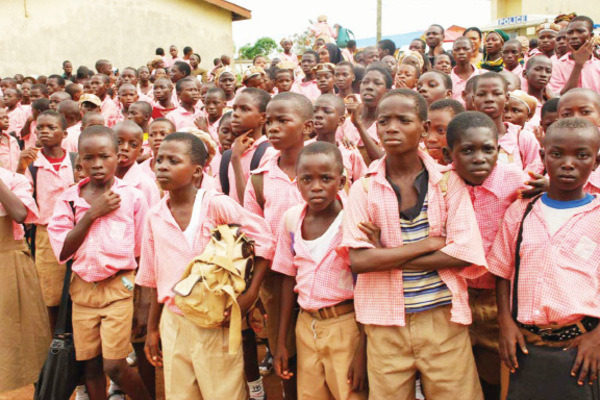In a significant move to combat the challenge of out-of-school children, the Nigerian Senate has taken a step forward with a bill that could transform the educational landscape of the country. The proposed legislation, which recently passed its second reading, aims to make basic education both free and compulsory, aligning with the Universal Basic Education Act of 2004.

Championed by Senator Idiat Adebule of Lagos West, the bill received overwhelming support from her colleagues. It introduces a penalty of N250,000 for parents who neglect to enroll their children in school, emphasizing the government’s commitment to education.
The Universal Basic Education (UBE) Act mandates that every Nigerian child is entitled to free, compulsory education up to junior secondary school. Parents are responsible for ensuring their children’s attendance and completion of this basic education.
Senator Adebule, spearheading the debate, argued that the bill’s passage would significantly reduce the number of children out of school. She highlighted that the lack of punitive measures for non-compliant parents has contributed to the current situation and insisted that poverty should not be an excuse to deny children a basic education.
Several senators voiced their support for the bill. Senator Sunday Karimi noted that despite the UBE Act, education is not entirely free in Nigeria, suggesting that the bill could address this discrepancy. Former Senate President Ahmed Lawan and Senators Asuquo Ekpeyong and Ekong Sampson called for more robust enforcement and increased government investment in education.
Senator Adamu Aliero linked the issue of out-of-school children to broader security concerns, implying that education is not just a right but a necessity for national stability.
Premium Times, a proponent of high-quality journalism, underscores the importance of keeping the public informed without the barrier of costly subscriptions. The publication’s commitment to accessible news is a testament to the value placed on informed citizenship.
As the bill progresses, it carries the hopes of millions of Nigerian children and their families. It represents a collective aspiration for a brighter future, where every child can access the education they deserve. The Senate’s decision will not only shape the educational sector but also reflect Nigeria’s dedication to its youth and its development.




